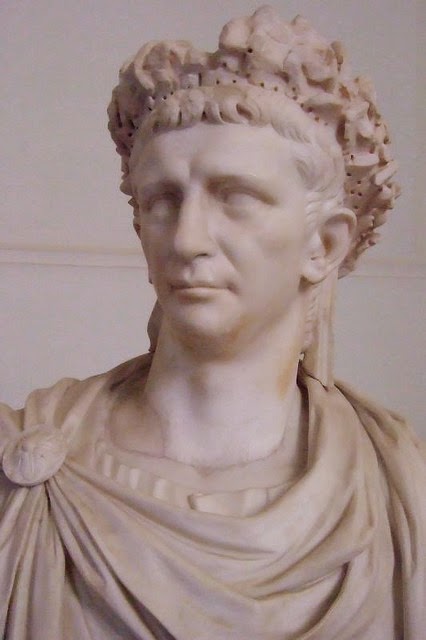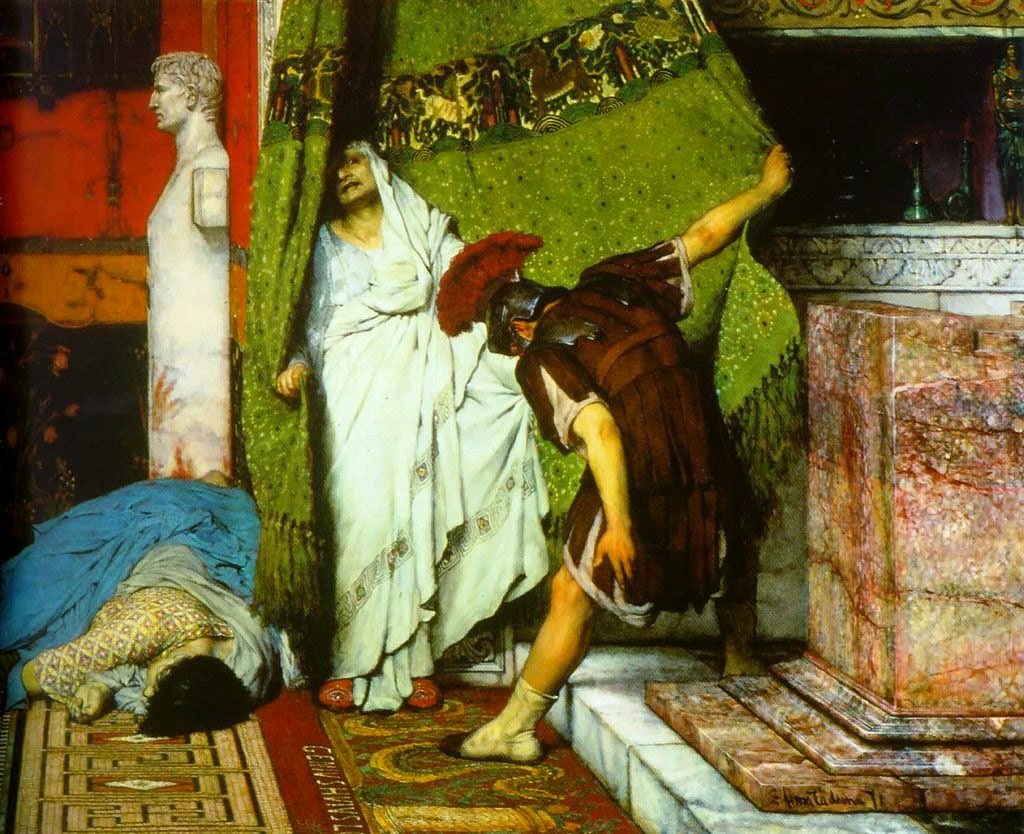A history resource article by Mary Harrsch © 2015
 |
| Bust of the Roman Emperor Claudius Photographed at the Museo Archaeologico Nazionale di Napoli in Naples, Italy by Mary Harrsch © 2007 |
"He ate and drank in excess regularly, rarely leaving his dining room until he was "stuffed and soaked". This caused him to gain considerable weight in later years and produced heartburn so severe that it is reported that he contemplated suicide as his only means of relief."
Thus begins a study to determine what may have caused the Roman Emperor Claudius' death as a clinical exercise at a 2001 clinical pathologists' conference at the University of Maryland School of Medicine. Each year, a team of practicing pathologists and historical consultants select a famous individual from the past whose manner of death remains speculative and attempts to derive a definitive cause of death.
Claudius' case is examined by Drs. William A. Balente, MD, Richard J. A. Talbert, PhD, Judith P. Hallett, PhD and Philip K. Mackowiak, MD.
The researchers continue:
"Born prematurely after only 7 months of gestation, he suffered from a succession of disorders including milk allergy, malaria, measles, deafness, and colitis. He suffered from weakness in both legs to the extent that he noticeably limped and could not walk more than a short distance without assistance. He had longstanding tics and jerks of his head and hands, as well as a stammer and drooling, which were most pronounced when he was excited. He was also prone to fits of inappropriate laughter."
 |
| Claudius cowers behind a curtain after the murder of his younger brother, the Roman emperor Gaius (Caligula) Caesar. He is astonished when the Praetorian Guard declare him Emperor instead of murdering him as well. "A Roman Emperor AD 41" by Sir Lawrence Alma-Tadema courtesy of Wikimedia. |
"An attending physician induced additional vomiting by placing a feather in the back of the patient's throat. Shortly thereafter, the emperor became confused and exhibited signs of unremitting abdominal pain and fecal incontinence. He died 12 hours later."
Was it a case of the "cure" being worse than the disease? (PDF of original article reprinted with permission)
Although the team ends up suspecting that a particular variant of mushroom was a contributor to Claudius' death, surprisingly, the researchers point to Claudius' existing physical disabilities as the reason the episode is ultimately fatal. In fact, the researchers suspect if Claudius had not be otherwise impaired, the assassination attempt probably would have failed.
I found Dr. Valente's discussion of possible causes of Claudius' long list of physical defects to be most interesting. He eventually arrives at a conclusion that Claudius suffered from congenital dystonia caused by abnormal basal ganglia - brain cells interconnected with the cerebral cortex, thalamus, and brainstem - the result of an extremely premature birth. Typical of this disorder, Claudius suffered from a twisting of the foot, involuntary cranial and cervical muscle contractions, an inability to control salivation at times and hypertrophy of the neck muscles as seen in some of his portrait sculptures. Claudius' excellent cognitive function, however, enabled the researchers to eliminate a number of other conditions.
 |
 |
 |
No comments:
Post a Comment